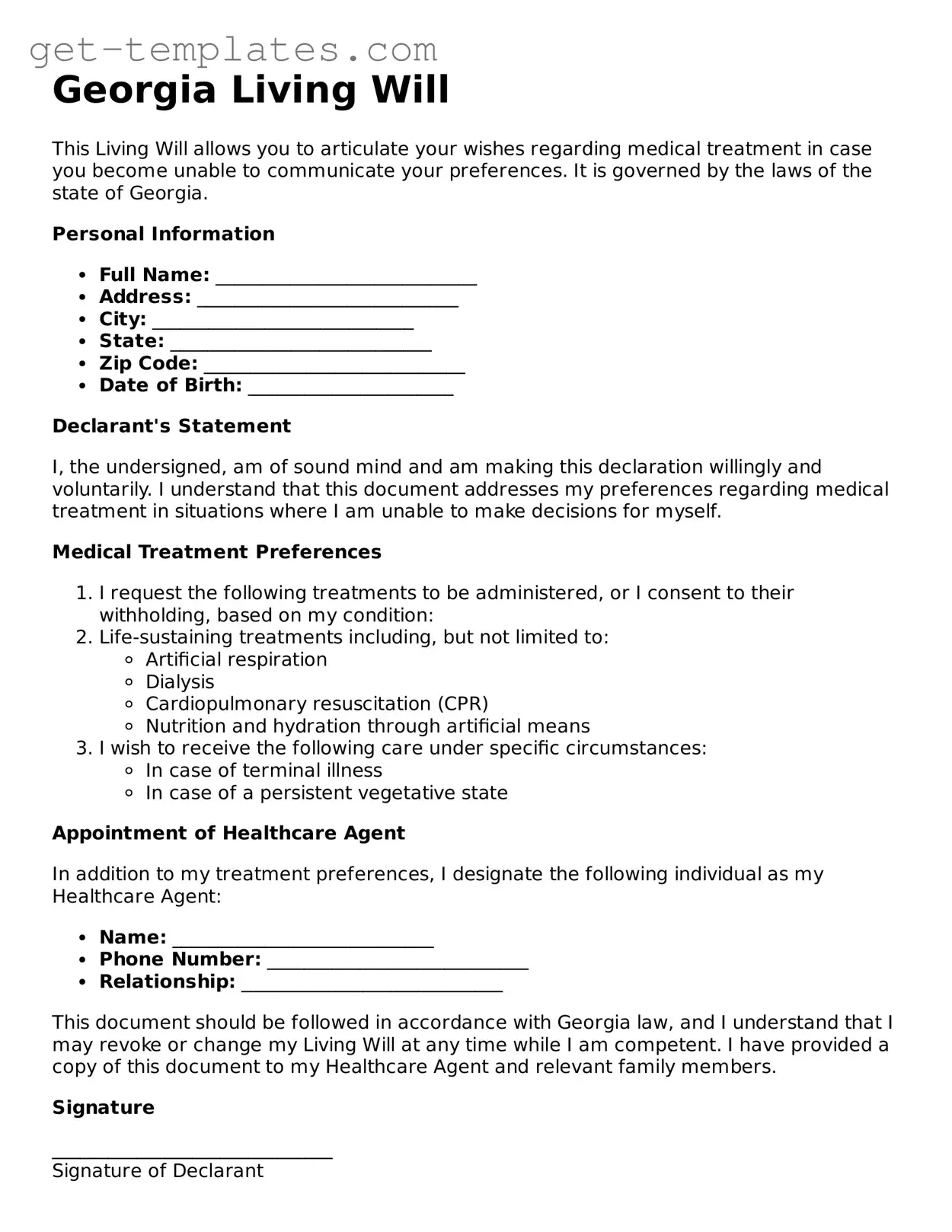Attorney-Approved Living Will Document for Georgia
A Georgia Living Will form is a legal document that allows individuals to outline their preferences for medical treatment in the event they become unable to communicate their wishes. This form is crucial for ensuring that one's healthcare decisions align with personal values and beliefs. By completing a Living Will, individuals can provide clarity and peace of mind for both themselves and their loved ones during difficult times.
Get Document Online

Attorney-Approved Living Will Document for Georgia
Get Document Online
You’re halfway through — finish the form
Finish Living Will online — edit, save, download made easy.
Get Document Online
or
⇓ PDF Form
